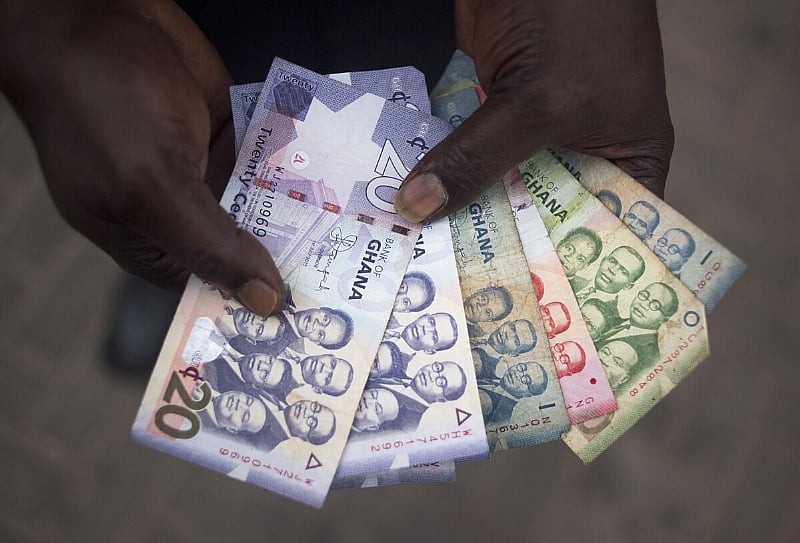The Ghanaian cedi experienced a slight depreciation against the US dollar on Wednesday, February 5, 2025, continuing a trend of fluctuating exchange rates. Data from Cedirates.com, a reliable source for currency information in Ghana, indicated a buying rate of GHS15.25 per dollar and a selling rate of GHS15.73. This represents a marginal decline compared to the previous day’s rates, with the buying and selling rates dropping by 2 pesewas and 1 pesewa, respectively. These figures reflect the general trend in the retail forex market, where bureaus offered rates of GHS15.50 for buying dollars and GHS15.90 for selling them. The interbank market, where financial institutions trade currencies, saw a slightly stronger cedi, with buying and selling rates of GHS15.37 and GHS15.39 per dollar, respectively. This difference between retail and interbank rates is typical, reflecting the varying margins and operational costs of different market participants.
The cedi’s performance against other major currencies, the British pound and the euro, also showed fluctuations. Against the pound, average exchange rates stood at GHS18.49 for buying and GHS19.60 for selling. The euro traded at an average of GHS15.73 for buying and GHS16.38 for selling. The Bank of Ghana’s interbank rates for these currencies were GHS19.20 for the pound and GHS15.96 for the euro, again indicating a slightly stronger cedi in the interbank market compared to the retail forex bureaus. These varying rates underscore the dynamic nature of the foreign exchange market and the influence of different market forces.
Money transfer services, a crucial channel for remittances and international transactions, offered competitive exchange rates. LemFi and Afriex, two prominent players in this space, provided rates of GHS15.26 and GHS15.39 per dollar, respectively, for transfers originating from the US or the UK to Ghana. For pound-denominated transfers, LemFi offered a rate of GHS18.97, while Afriex provided a rate of GHS19.10. Euro transfers saw Afriex offering GHS16.03 per euro and LemFi at GHS15.78. These rates, often slightly more favorable than traditional banking channels, reflect the competitive landscape of the money transfer industry and the benefits of technological advancements in facilitating cross-border transactions.
Digital subscriptions, an increasingly important aspect of modern consumption, also experienced specific exchange rates. Payments for services like Netflix, Spotify, and Apple Music, typically processed through international card networks like Visa and Mastercard, were subject to an exchange rate of GHS16.48 per dollar. This rate, often higher than the prevailing market rate, likely incorporates transaction fees and other charges associated with international card payments. This highlights the complexities of international transactions and the various factors that can influence the final cost for consumers.
The fluctuations in the cedi’s value, along with those of the British pound and the euro, are attributed to a complex interplay of global economic factors. Analysts often point to the impact of US economic policies, particularly those implemented during the Trump administration, as a significant driver of these currency movements. Policies such as increased tariffs on goods from major trading partners like Canada, Mexico, and China had the effect of strengthening the US dollar relative to other currencies. This ripple effect impacted global currency markets, influencing exchange rates between the cedi and other major currencies.
The depreciation of the cedi, while concerning for some, is part of the broader dynamics of the global financial system. Factors such as international trade balances, investor sentiment, commodity prices, and political stability all play a role in determining a currency’s value. The Ghanaian government, through the Bank of Ghana, often implements monetary policies aimed at managing inflation and stabilizing the cedi’s exchange rate. These policies, coupled with broader economic developments, contribute to the ongoing fluctuations in the forex market. The cedi’s performance against major currencies will continue to be a closely watched indicator of Ghana’s economic health and its integration into the global financial landscape. Understanding these complex interactions and the various factors at play is crucial for businesses, investors, and individuals engaging in international transactions.














